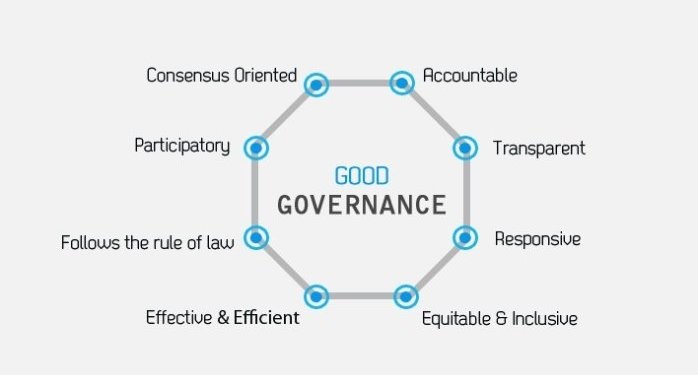In the world of Environmental, Social, and Governance (ESG), governance is often overlooked, but it plays a critical role in ensuring that a company’s environmental and social commitments are credible, transparent, and measurable. Corporate governance is the foundation upon which ethical practices are built, guiding decision-making, risk management, and accountability. However, traditional governance structures often face challenges related to transparency, fraud, and compliance.
Blockchain technology offers a transformative solution for enhancing governance in ESG by providing a transparent, immutable, and decentralized platform for tracking corporate decisions and actions. In this article, we will explore how blockchain can be leveraged to strengthen governance frameworks, ensuring corporate accountability and helping companies meet their ESG commitments.
The Importance of Governance in ESG
Governance refers to the system of rules, processes, and practices by which a company is directed and controlled. Good governance is essential for ensuring that a company:
• Adheres to ethical standards and complies with legal requirements.
• Manages risks effectively, including environmental and social risks.
• Fosters accountability and transparency in decision-making.
• Aligns with long-term stakeholder interests, including investors, employees, and the broader community.
However, governance is often one of the most challenging aspects of ESG to implement and measure. Without robust governance systems in place, companies may fall short in their efforts to manage risks, prevent fraud, and uphold ethical standards.
How Blockchain Enhances Corporate Governance in ESG
Blockchain’s decentralized, transparent, and secure architecture provides several key advantages for enhancing governance in ESG:
1. Immutable Record of Corporate Actions
Blockchain creates an immutable ledger of all corporate actions, including board decisions, financial transactions, and compliance measures. This ensures that all actions are permanently recorded, preventing tampering or manipulation. For example, blockchain can be used to track decisions related to environmental impact or labor practices, ensuring that governance actions are transparent and traceable.
By recording these actions on the blockchain, companies can provide auditable evidence of their adherence to ESG principles, fostering greater trust with investors and regulators.
2. Transparent Auditing and Compliance
One of the biggest challenges in governance is ensuring compliance with regulations and ethical standards. Blockchain provides a transparent platform for real-time auditing of corporate actions, allowing regulators, auditors, and stakeholders to verify that companies are complying with legal requirements and ethical standards.
For instance, companies can use blockchain to track their compliance with anti-corruption laws, tax obligations, and ethical sourcing requirements. By providing real-time access to governance data, blockchain ensures that companies remain accountable and transparent in their business practices.
3. Automating Governance with Smart Contracts
Smart contracts—self-executing contracts that run on blockchain—can be used to automate governance processes and ensure compliance with corporate policies. For example, smart contracts can automatically trigger governance actions based on predefined conditions, such as when a company meets specific environmental or social targets.
This automation reduces the risk of human error or deliberate non-compliance and ensures that governance processes are followed consistently. For example, if a company’s board of directors makes a decision related to sustainability targets, the smart contract can automatically execute the required actions and record the results on the blockchain, ensuring transparency and accountability.
4. Reducing Fraud and Corruption
Blockchain’s decentralized and tamper-proof structure makes it a powerful tool for preventing fraud and corruption. In traditional governance systems, financial transactions and decisions can be manipulated, leading to fraudulent behavior and corruption.
By recording all governance actions on a transparent and immutable ledger, blockchain ensures that any attempt to manipulate data or engage in corrupt practices is immediately visible and traceable. This fosters greater accountability in corporate decision-making and helps companies meet their governance-related ESG goals.
Real-World Examples of Blockchain-Enabled Governance in ESG
Several companies and platforms are already using blockchain to enhance corporate governance and ensure compliance with ESG principles:
• EY’s Blockchain for Transparency: EY (Ernst & Young) has developed a blockchain-based system for transparent financial reporting and auditing. This platform allows companies to record financial transactions on the blockchain, ensuring that all corporate actions are auditable and compliant with governance standards.
• Aragon: Aragon is a blockchain platform designed to create decentralized autonomous organizations (DAOs), where governance decisions are made transparently and democratically. By using blockchain to record all governance actions, Aragon enables companies to create more transparent and accountable decision-making processes.
These examples demonstrate how blockchain can be used to create transparent, traceable, and accountable governance frameworks, ensuring that companies meet their ESG commitments.
Baliola’s Role in Supporting Governance with Blockchain
As businesses face increasing pressure to improve their governance practices and ensure compliance with ESG principles, Baliola’s Mandala Application Chain offers a powerful blockchain solution that can enhance governance across all sectors. Baliola’s platform enables companies to:
• Record and audit governance actions: Use blockchain’s immutable ledger to record all corporate decisions, ensuring that governance actions are transparent and auditable.
• Automate compliance: Implement smart contracts to automate governance processes and ensure compliance with legal and ethical standards.
• Reduce fraud and corruption: Leverage blockchain’s secure and tamper-proof architecture to prevent fraud and ensure accountability in corporate governance.
By adopting Baliola’s blockchain technology, companies can strengthen their governance frameworks and ensure that they meet the highest standards of transparency and accountability in their ESG efforts.
Conclusion
Blockchain technology provides a powerful tool for enhancing corporate governance in ESG. By offering transparency, accountability, and real-time auditing, blockchain ensures that companies can meet their governance-related ESG goals while building trust with stakeholders and regulators.
As governance continues to play a critical role in the success of ESG initiatives, Baliola’s Mandala Chain is ready to support companies in creating more transparent and accountable governance frameworks.
Stay Informed: Follow Baliola for more insights on how blockchain is transforming governance and corporate accountability in ESG.
